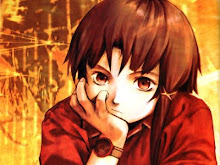 In the prelude we get a few wonderful lines from Cephalus on how content he is in his old age. He is glad to be done with the passions of youth and can give more money to his sons than he inherited. But he has a great fear of death, this makes him wonder if he has wronged anyone.
In the prelude we get a few wonderful lines from Cephalus on how content he is in his old age. He is glad to be done with the passions of youth and can give more money to his sons than he inherited. But he has a great fear of death, this makes him wonder if he has wronged anyone.He mentions that since he is wealthy he can pay his debts both to other human and the gods. In light of the coming discourse it must be asked "Is he eudaimon or happy?" and if this is so is it because he has been dikaiosune or doing right (or as my translation horribly says "just")? He worries about giving back what one has borrowed, but Socrates brings up that sometimes its not right to give back what was borrowed. This launches the Republic. Somehow this initial problem will turn into the description of the ideal state.
Socrates and Polemarchus debate that dikaiosune is "Giving every man his due" which is quickly linked to "doing good to one's friends and doing harm to ones enemies". From this conversation certain muddled concepts that will remain muddled throughout this section show up or are hinted at. The main mix up is the extent that Techne or skill is mixed or separated from dikaiosune and both from happiness. My main irritation (yet also my main pleasure as this is a dialogue and Plato does try to do justice to both sides) at Plato in this section the way Socrates seems to exploit this to win arguments. I think Plato realizes this and he has other characters call Socrates on it. But I also think Plato knows he wants to go down a certain kind of philosophic road, but gives us hints that other avenues are out there (or I could reading too much into certain lines). Anyway, in this section Socrates seems to separate the just man from people who do harm to their enemies and good to their friends. This could be linked to the fact that this is an ideal just man who would only do just things in the most just way. This ends up making him a warrior in war time and a banker in peace time. Here dikaiosune has been separated from Techne in the general sense. But it could also be said that it could be a narrow kind of Techne, the skill of justice. So there are no just doctors, justice is a vocation all on its own. This ends up making justice not seem useful. After this another argument knocks this conception of justice down again (because Polemarchus still has not been persuaded, for the Greeks is this essential?). This time Socrates goes after who is a friend and who is an enemy. Quickly he pokes a few conceptual holes, but they repair the argument to make it better. But then Socrates challenges this by challenging that the just man harms people. His argument is from Techne and the standards involved in evaluating goodness in Techne. So it appears Techne can be appealed to as a whole to talk about the its narrow part dikaiosune. But the problem is that it involved standards of good even though dikaiosune is about good. But dikaiosune is about doing good. Is virtue as separate from being virtuous?
Now big bad Thrasymachus begins his debate with Socrates. Plato might be having some fun at Thrasymachus' expense, never the less he seems to see that there is something to the position. For Thrasymachus justice is "the advantage of the stronger". I, like many person infulenced by Marxist ideas, have some sympathy for this position. How will Socrates handle this? First he points out that the laws are not always advantagous to the rulers because they make mistakes. Clitophon makes what is to my eyes at least the quick fix to the argument . He says that justice is what the stronger think to be in their advantage. But this is not what Thrasymachus argued. But at least Plato is aware of that road, but he is not taking it. Rather he is concerned with justice as it relates to Techne. Otherwise it is simply justice as the stronger present the concept itself, rather than being realted to the feild of Techne.
Will finish later
